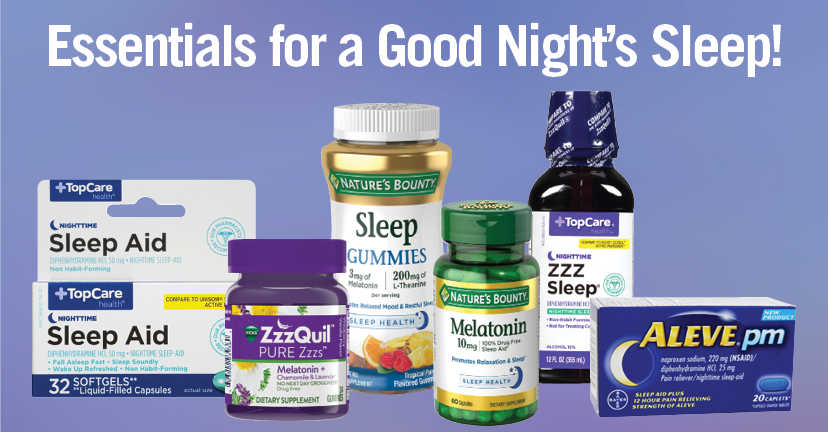
Ellie Wilson
MS, RDN Manager, Lifestyles and Wellness
Not getting adequate sleep can greatly interfere with everyday life. It is so important, improving sleep habits and quality have been added to the Life’s Essential 8 lifestyle factor list by the American Heart Association, a roadmap to protecting heart health. Sleep is fundamental to overall capacity to function properly, and depending on your age, the amount of sleep you need may differ. According to the CDC, adults ages 18-60 need 7+ of sleep a night. On the other hand, adults 61-64 need 7-9 hours a night and adults 65+ should be getting 7-8 hours.
The quality of your sleep is just as important as the quantity. Waking up multiple times a night will affect how you feel the next day. Data shows that lack of sleep can undermine mood, alertness, short-term memory, and focus. Long-term chronic sleep issues can negatively impact heart health, metabolism, and weight.
Luckily, there are many ways we can prepare for a better night’s sleep throughout our days. Ensure that you are staying physically active but be cautious of the timing of your exercise. Physical activity gives us energy, so if you work out close to bedtime, you may have more of a challenge falling asleep. Other factors that can undermine sleep health include blue light exposure from smart phones and computers, and shift work. Try limiting screen time before getting ready for bed. Not only does blue light stimulate your brain, but it also slows the production of the sleep hormone melatonin.
While there are many ways to try and develop healthy sleep habits, we sometimes need extra assistance. If you or someone you know is struggling to obtain a steady sleep schedule, see your healthcare provider to have an evaluation for conditions like sleep apnea and insomnia. These require treatment as well. All medications and supplements should be evaluated by a healthcare provider and/or pharmacist for interactions. Melatonin or any sleep aids should be cleared with pediatricians, so children should never be given supplements without prior consultation.
We carry several sleep aids that may meet your needs, and some other items that can contribute to relaxation and sleep hygiene, such as chamomile and other teas, aromatic lotions, and bath salts. Look at our Sleep Aids Collection by clicking on the “Shop Sleep Aids” green tab below. We wish you sweet dreams!
